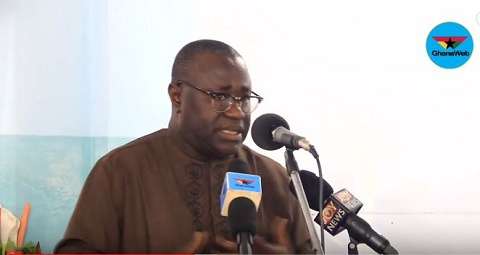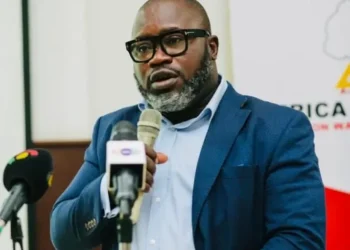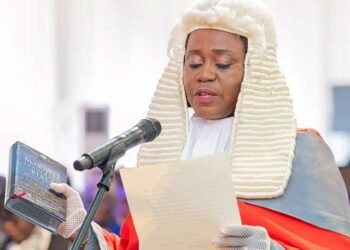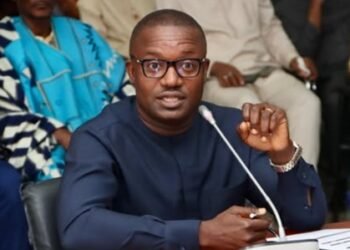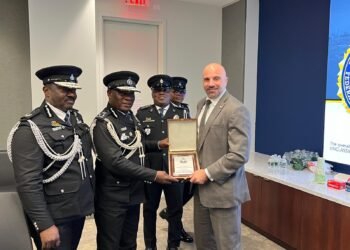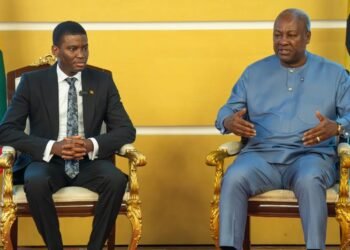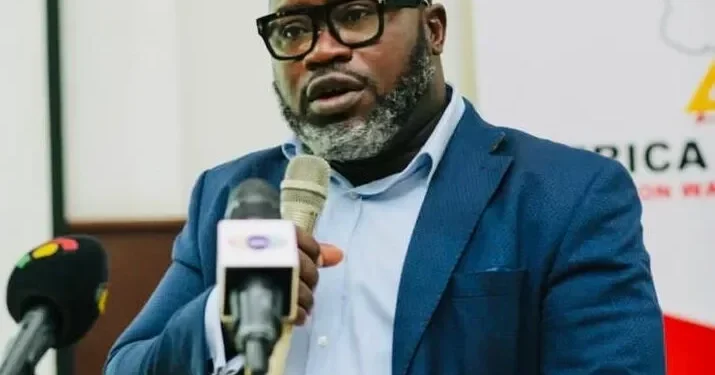Professor Kwesi Aning, a prominent security analyst specializing in risk assessment, analysis, and forecasting, recently weighed in on Ghana’s pressing environmental crisis.
In an interview, he discussed the government’s failure to adequately address the environmental degradation caused by illegal mining, commonly known as “galamsey.”
He highlighted the serious consequences of this issue and criticized both the government’s and labor unions’ responses.
Professor Aning did not mince words when addressing the gravity of the situation, describing the environmental crisis as an “existential threat.”
He expressed deep concern over the government’s lack of commitment and seriousness in handling the issue. In his view, the government’s approach has been insufficient and reactive, rather than proactive and strategic. He lamented; “…Listening to the minister right now, I simply got sad. That there is no commitment, nor seriousness to this.”
He pointed out that despite the clear guidance provided by the national security strategy document and the Security and Intelligence Services Act (Act 1030 of 2020), which mandates coordination among statutory institutions to prevent crises, the government has failed to take the necessary steps.
He questioned why, despite the legal frameworks in place, the government had not acted more decisively.
“[The minister] knows that the national security strategy document is very clear… he’s telling us about drones, [boats], 300 people being paid. There is a certain lack of seriousness about how the extent of this problem is understood.”
Professor Kwesi Aning Security Analyst
The Political Will to Address the Crisis
Professor Aning emphasized that the failure to address the environmental degradation stems from a lack of political will, rather than ignorance of the problem.
He expressed frustration with the government’s apparent indifference to the crisis, stating that they “just don’t care well enough.” According to Professor Aning, the issue should never have reached this critical point, and it is clear that extraordinary political measures are needed.
However, the government has been slow to respond to the severity of the environmental degradation.
“The notion of a state of emergency is normally declared by a government that thinks it needs extraordinary measures to do so. In the Ghana case, we are seeing an inverse process in which organized labor and ordinary citizens are saying, government is not up to speed with the character and nature of the crisis.”
Professor Kwesi Aning Security Analyst
Organized Labor’s Call for a State of Emergency
Professor Aning observed that the call for a state of emergency is not coming from the government but from organized labor and citizens who recognize the crisis and its impact on Ghana’s environment.
He expressed concern that the government is not taking this demand seriously, even though it is a reflection of the public’s frustration with the government’s inaction.
“Cabals don’t issue licenses. Cabals don’t just get up from outside one’s country and enter somebody’s sovereign territory to do what is taking place. So, if he knows there are cabals, why has it taken him so long to act?”
Professor Kwesi Aning Security Analyst
Impediments to Declaring a State of Emergency
Professor Aning pointed to the lack of elite consensus within Ghana’s leadership when asked about the impediments to declaring a state of emergency.
He stated that while the environmental crisis requires extraordinary measures, the necessary political will and consensus do not exist.
“The impediments mainly [are] that the elite consensus that must come round to declare this state of emergency does not exist in Ghana and if I want to use the ministers words, there are multiple interest groups and what he calls cabals who are splitting the front for what ought to be a national decisions and agreement that the levels of environmental degradation are posing an existential threat to this country.”
Professor Kwesi Aning Security Analyst
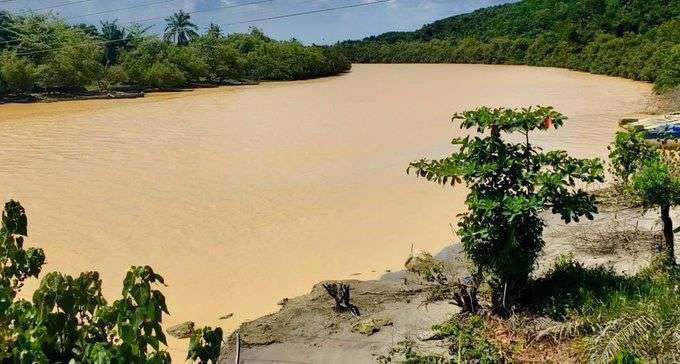
Organized Labor’s Split and Government Inaction
Professor Aning warned that even if labor unions proceed with their threatened shutdown, illegal mining activities will likely continue due to the government’s lack of genuine commitment to stopping them.
He noted that the organized labor front is already beginning to fracture, with different factions criticizing each other, and this could undermine the effectiveness of their efforts to demand change.
He further expressed skepticism about whether the government would take any meaningful action even in the face of public outcry.
“Even if there’s a shutdown on the 10th [October], the licenses will continue to be issued, the mining will continue to go on, and then we will continue to suffer.”
Professor Kwesi Aning Security Analyst
In his analysis, Professor Kwesi Aning highlighted the environmental crisis in Ghana as a matter of national security, not just an environmental or political issue.
He lamented the government’s lack of seriousness and political will to address the problem, while also noting the disunity among those calling for action.
Professor Aning’s analysis underscores the urgent need for consensus and extraordinary political measures to prevent further environmental degradation.
He concluded that without such actions, the country would continue to suffer the consequences of this crisis.
READ ALSO; CeCe Winans Reflects on God’s Goodness on 60th Birthday



